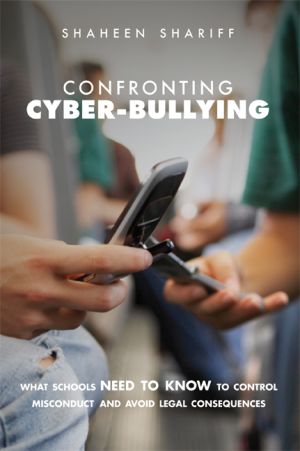We are now closed for the Christmas and New Year period, returning on Monday 5th January 2026. Orders placed during this time will be processed upon our return on 5th January.

This book is directed to academics, educators, and government policy-makers who are concerned about addressing emerging cyber-bullying and anti-authority student expressions through the use of cell phone and Internet technologies. There is a current policy vacuum relating to the extent of educators’ legal responsibilities to intervene when such expression takes place outside of school hours and school grounds on home computers and personal cell phones. Students, teachers, and school officials are often targets of such expression. The author analyzes government and school responses by reviewing positivist paradigms. Her review of a range of legal frameworks and judicial decisions from constitutional, human rights, child protection, and tort law perspectives redirects attention to legally substantive and pluralistic approaches that can help schools balance student free expression, supervision, safety, and learning.